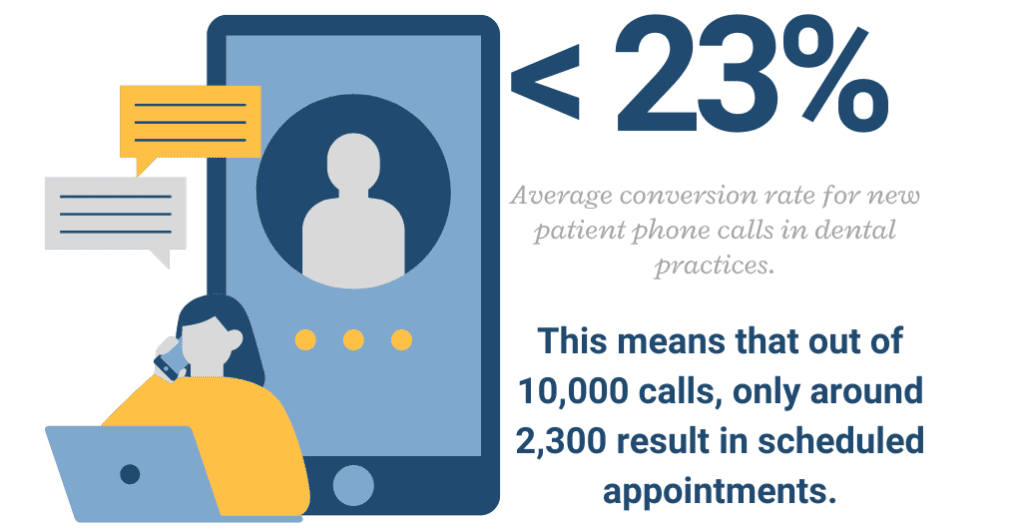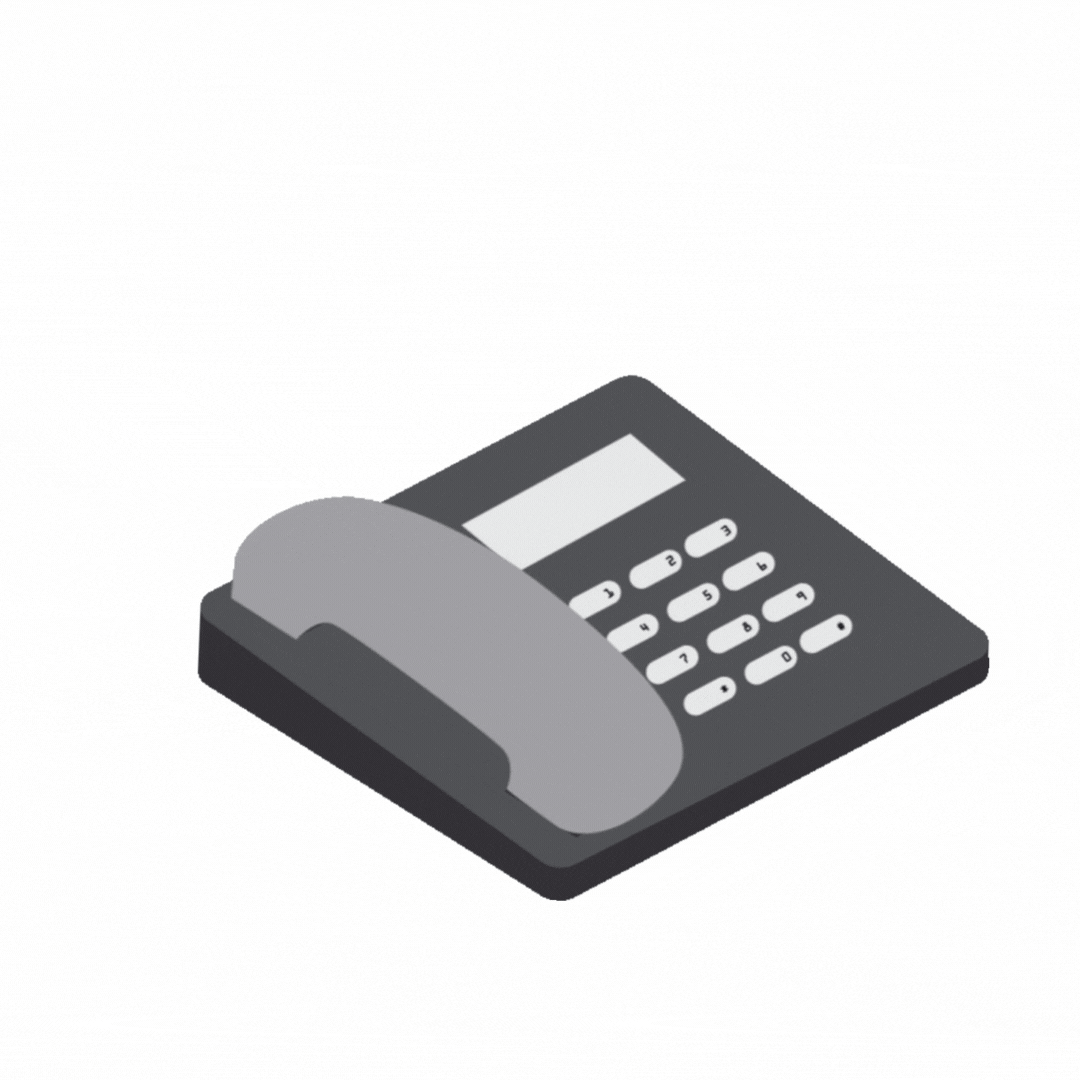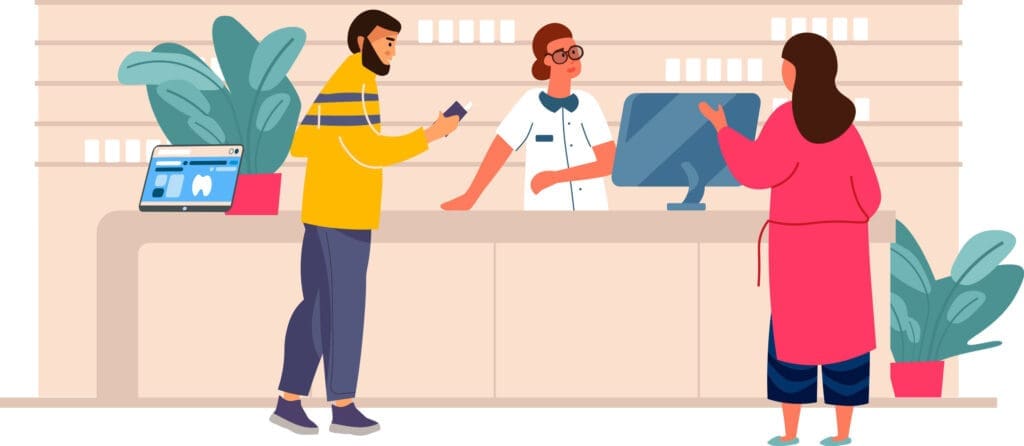The success of a dental practice heavily relies on various factors, including effective marketing, quality dental care, and a skilled team. Among the essential team members, the dental practice receptionist plays a pivotal role in converting potential patients into actual appointments.
A while back, I had a great discussion with Sabri Blumberg on our podcast, Dental Business RX, about “A New Take on the Dental Receptionist Position,” where we talked about the importance of the receptionist role and why the receptionist is one of your most important partners in driving practice growth if you are utilizing them properly.
And let me just say, your response was overwhelming! Since then, we’ve received numerous follow-up questions about hiring and training the ideal dental reception candidate.
So, this blog is dedicated to addressing all those burning questions. We’ll explore why the dental receptionist plays such a vital role, the challenges they encounter while handling a bunch of new patient inquiries, and, of course, how to empower your receptionist for greater success.
The Significance of Your Dental Practice Receptionist
I already mentioned that your receptionist is one of the most important factors in the growth (or lack thereof) of your dental office. Let’s go over a few reasons why:
Your Patients’ First Impression
As the frontline representative of your dental office, the receptionist has a crucial impact on the first impression patients form about your practice. When someone calls or visits your dental office for the first time, the receptionist the initial point of contact.
A friendly, professional, and attentive receptionist creates a positive atmosphere, helping patients feel welcomed and valued. On the other hand, an unpleasant interaction can discourage potential patients from scheduling an appointment, leading to missed opportunities for your practice.
The Impact on Marketing Efforts
Investing in marketing is essential for driving practice growth, but if your receptionist isn’t sharp at converting phone calls into appointments, you’re essentially pouring resources into a leaky bucket.
Many people believe that when they pay for marketing (Google ads, postcards, SEO, etc.), that marketing will bring them new patients. That’s not true! All marketing will ever get you is phone calls (or online requests for appointments or information). You could have an incredibly successful marketing campaign that brings you hundreds of phone calls, but still not acquire new patients because you aren’t scheduling them, getting them to arrive, and retaining them.
The Issue of New Patient Waste
Research by Viva Concepts revealed that the average conversion rate for new patient phone calls in dental practices was less than 23%. This means that out of 10,000 calls, only around 2,300 resulted in scheduled appointments. That’s a lot of missed opportunities!
Many dental practices invest a lot in marketing efforts to attract new patients. And while marketing brings in new patients, the real challenge lies in converting those leads.
If the receptionist position isn’t managed well, all that potential and hard-earned money goes to waste. , so don’t let potential patients slip through the cracks – make sure your receptionist is on top of their game.
That conversion percentage can be up around 80%+ with the right receptionist and good training.
Not to mention, if your receptionist is responsible for reaching out to patients for recall, reactivation, outstanding treatment, etc., then their attitude and phone skills will make or break the success of those activities, too.
Data-Driven Success: Tracking New Patient Reach and Statistics
Rather than solely focusing on the number of new patients, it is crucial to track the number of new contacts or “reaches.” This includes individuals contacting your practice for the first time as potential new patients.
Monitoring such metrics helps you understand the effectiveness of your marketing efforts and the receptionist’s performance.
In light of this, it is essential that you track your incoming phone calls. Call tracking/recording software is great, but you should also go a step further than that and have your receptionist keep a New Patient Call Log. With this log, they can mark down each potential new patient call, how they heard about you, what they were calling for, and whether or not they scheduled an appointment.
This way you can see objectively how well your receptionist is doing at converting phone calls into appointments, as well as which marketing activities are working. If the conversion percentage is poor, then help them sharpen their skills using some of the tools we cover below.
Download the New Patient Call Log here.
The Ideal Receptionist Candidate
When hiring a receptionist or new patient coordinator, look for individuals who are upbeat, great communicators, and assertive when needed. They should be able to confidently direct people and maintain focus during phone calls. Prior experience can be valuable, but proper training and support are still necessary.
You’re going to have to train your receptionist on how you do things in your office, regardless of whether or not they have prior experience in dentistry. So, I’m much more interested in their attitude and capabilities than I am in whether or not they’ve used dental software before.
Look for candidates who are:
Upbeat and Friendly: A warm and welcoming personality goes a long way in making patients feel comfortable and appreciated.
Excellent Communicators: Strong communication skills, both on the phone and in person, are essential to convey information clearly and effectively.
Efficient Multitaskers: Receptionists often juggle multiple tasks simultaneously, so the ability to multitask efficiently is crucial.
Training Your Receptionist for Success
Once you’ve hired the ideal candidate, start by outlining the purpose of their role and the expectations you have for them. Emphasize the importance of their job in converting inquiries into scheduled appointments.
As I said, your receptionist is your partner in growing the practice. They need to understand that they are not just there to answer questions, direct phone calls, or perform other duties. Yes, they do need to do those things, but it’s all in the direction of bringing patients in and ensuring they have a good experience.
So, before setting them loose on the phones, ensure your receptionist is thoroughly trained in the purpose of their job, expected outcomes, and how to use the New Patient Intake Form (more info on this form below).
Consider the following training tips:
Phone Skills Training
Invest in phone skills training and ensure they are comfortable handling common scenarios like insurance inquiries, scheduling appointments, and addressing dental concerns. You should also regularly assess and improve their phone skills through monitoring and constructive feedback.
We have some sample phone scripts you can use in training them. Download here: New Patient Phone Scripts eBook.
Although when I say “scripts,” I don’t mean that literally. These are examples you can use to practice different questions and scenarios, but they will need to come up with their own words and be comfortable having a real, free-flowing discussion. We find that strictly following a script does not work well.
Want to see how good your front office team are at answering the phones? Request a free Mystery Call here.
Role-Playing Scenarios
Practicing different scenarios will help build their confidence and prepare them for various situations they might encounter while answering calls.
Conduct thorough training and role-playing sessions to simulate various patient interactions. Provide them with phone scripts to guide their responses and help them build confidence in their interactions.
Handling Various Scenarios
 Your receptionist will encounter a wide range of inquiries and questions from potential patients. To ensure they handle each situation expertly:
Your receptionist will encounter a wide range of inquiries and questions from potential patients. To ensure they handle each situation expertly:
Empathy and Understanding: Train your receptionist to be empathetic and understanding towards patients’ dental concerns and fears. A compassionate approach can help alleviate anxiety.
Information Dissemination: Ensure your receptionist is well-informed about the dental services your practice offers, insurance plans accepted, payment options, and any promotional offers.
Time and Attention: Studies show that the longer the duration of the phone call, the more likely the patient is to schedule an appointment. The biggest problem most receptionists have is that they are ultra-busy and distracted, so they just want to answer the caller’s questions quickly and hang up as soon as possible. That is counterproductive!
So you may need to reorganize a bit so whoever is taking new patient calls has the time and space to focus on the call and take the time to truly understand them and answer their questions. In fact, some of our clients with larger practices have a separate call room with one (or more) employees whose sole job is to be on the phone without any other distractions.
New Patient Intake Form
Introduce them to a New Patient Intake Form, which will serve as a foundation for understanding patient needs and concerns, as well as collecting the information you’ll need before their initial appointment. A well-filled intake form can assist the dentist in providing tailored treatment options.
This form also guides the receptionist through the conversation with a potential new patient. They simply need to run through the New Patient Intake Form with the caller.
Download the New Patient Intake Form here.
You may need to customize this form with any extra info you want to collect in your office.
Unlock the Potential of Your Dental Practice with MGE’s New Patient Workshop
Unlock the full potential of your dental practice with MGE’s New Patient Workshop! This transformative workshop is designed to equip your team with the essential skills both internally and externally to attract, acquire, and retaing fee-for-service new patients.
During the workshop, your team will learn proven strategies to enhance patient communication, implement effective marketing, improve conversion rates, and boost overall practice productivity. With MGE’s track record of success and wealth of experience in the dental industry, you can trust that this workshop will
Invest in your practice’s growth and empower your dental receptionist and team members to excel in handling new patient inquiries. Click here to learn more about MGE’s New Patient Workshop and the numerous benefits it can bring to your dental practice.
Organizational Aspects of the Receptionist Position
As your dental practice gains popularity and attracts more patients, the volume of inquiries may rise significantly. This surge in new patient inquiries can create challenges for your receptionist, potentially leading to missed opportunities and frustrated callers.
The receptionist’s responsibilities may need to be divided to handle the increasing volume efficiently. In larger offices, roles like receptionist, scheduler, and new patient coordinator might be separate positions. Properly allocating responsibilities allows each function to be managed with greater attention and care.
Consider the following strategies:
Team Structure
Evaluate the call volume and assess whether your receptionist needs additional support. Depending on the size of your practice and the number of incoming inquiries, you may choose to have a dedicated call center team or hire additional receptionists to share the workload.
Efficient Call Handling
Implement call tracking and recording systems to identify areas for improvement. Provide your receptionist with regular feedback to enhance their call-handling skills and ensure a consistent level of service.
Adapting to Different Marketing Funnels
With various marketing strategies in place, your dental practice may receive new patient inquiries through different channels. These could include phone calls, contact forms on the website, or online sales funnels with landing pages. It’s essential to train your receptionist to handle inquiries from all these sources efficiently.
Implementing Online Sales Funnels
In addition to phone calls, many patients may reach out through contact forms or online sales funnels on your website. To accommodate both incoming and outgoing calls, you may need to consider hiring a new patient coordinator to handle these tasks exclusively. Someone needs to be available to reach out to any online requests you receive immediately and follow up until they reach the person.
Automated Solutions
Utilize technology such as automated phone systems or AI-powered chatbots to handle basic inquiries, allowing your receptionist to focus on more complex tasks and personalized interactions.
Website Inquiries
When potential patients fill out contact forms on your website, ensure your receptionist responds promptly. Consider setting up automated email responses to acknowledge their inquiry and inform them of the expected response time.
Social Media and Online Sales Funnels
Monitor your social media platforms and online sales funnels regularly. Your receptionist or New Patient Coordinator should be well-versed in responding to messages, comments, and inquiries through these channels.
Addressing High Call Volumes
As the volume of new patient calls increases, your receptionist might struggle to manage them all effectively. Long wait times and placing callers on hold for extended periods can negatively impact the conversion rate. To address this issue, consider the following solutions:
Splitting Shifts
Divide the receptionist’s workday into shifts, ensuring that there is always coverage during peak call times. This way, callers don’t have to wait long to speak with someone.
Call Center Support
If your practice receives an exceptionally high volume of calls, consider outsourcing the calls during peak hours to a professional call center trained in handling medical inquiries.
Expanding Availability
Consider expanding the hours your practice’s phone lines are open to capture potential new patient inquiries after hours and on weekends. Offering extended availability can lead to a noticeable increase in new patient conversions.
When one of our clients implemented call tracking, they noticed they were receiving a lot of calls after-hours, and the majority of these callers didn’t bother to leave a voicemail, so he was just missing out on these opportunities. So he hired a recent high school graduate part-time to just take phone calls between 5:00-10:00 p.m. They wound up scheduling a ton of additional new patients resulting in tens of thousands of dollars in collections for just the cost of one person’s part-time wages. There are also call centers you can hire for this function, too.
Summary
The role of a dental receptionist is vital in ensuring the success and growth of your dental practice. As the first point of contact for potential patients, receptionists play a crucial role in creating a positive impression and establishing strong relationships. By implementing effective training and considering innovative solutions for managing high call volumes, you can enhance patient satisfaction and conversion rates.
Remember, tracking new patient inquiries and statistics is essential for making informed decisions and optimizing your practice’s performance. Embracing MGE’s New Patient Workshop can further empower your team with invaluable skills, taking your dental practice to unprecedented heights of success. You can also train your receptionist with our online courses at www.ddssuccess.com.
I hope this helps! And if you have any questions or want to see where you can improve in your practice, schedule a free consultation here.



No Comments
Be the first to start a conversation